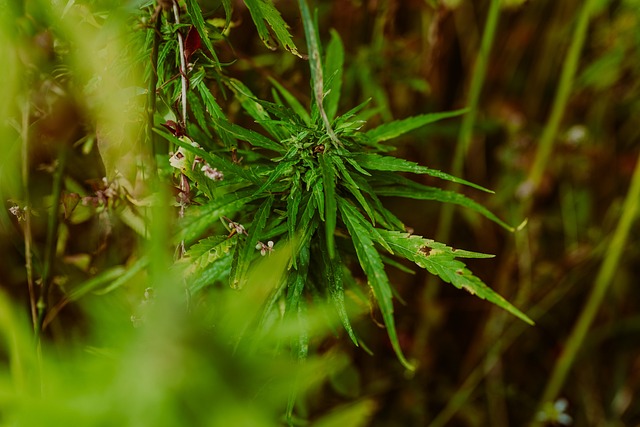The THCA flower, a non-psychoactive component of cannabis, has been found to possess significant anti-inflammatory properties through interaction with the endocannabinoid system. Studies indicate that THCA, the precursor to THC, can modulate pain and inflammation responses without psychoactive side effects. Consumption methods include smoking, vaporizing, or even incorporating it into food and beverages, which allows users to benefit from its therapeutic benefits. The anti-inflammatory efficacy of THCA is believed to stem from its action on certain enzymes and receptors associated with inflammation and pain, making it an appealing natural alternative for conditions like arthritis and muscle soreness. Additionally, THCA flowers are gaining attention due to their potential to offer relief with fewer side effects compared to traditional anti-inflammatory drugs. For optimal use, it's crucial to select high-quality THCA flowers that are harvested at peak maturity, with a rich coating of trichomes, and grown in clean soil conditions. Proper storage and dosing are also key factors to ensure the anti-inflammatory effects are maximized. As research progresses, THCA flower is becoming increasingly recognized for its potential role in health maintenance and as part of integrative health practices. Users are encouraged to consult healthcare professionals before incorporating THCA flower into their wellness routine, especially those with pre-existing health conditions or taking other medications.
Discover the natural potential of THCA flower tips, a botanical source of potent anti-inflammatory effects. This article delves into the therapeutic properties of THCA, the non-psychoactive precursor to THC found in cannabis plants. From selecting high-quality THCA flower to understanding its science and integrating it into your wellness routine, learn how this plant compound can contribute to your health. Join us as we explore the benefits of THCA flower for anti-inflammatory relief, with practical advice on consumption and preparation to harness its full potential.
- Unveiling THCA Flower: A Natural Approach to Anti-Inflammatory Relief
- The Science of THCA: Understanding Its Anti-Inflammatory Properties
- Harvesting Harmony: Tips for Selecting High-Quality THCA Flower
- Preparation and Consumption: Maximizing the Anti-Inflammatory Benefits of THCA Flower
- Integrating THCA Flower into Your Wellness Routine for Optimal Health
Unveiling THCA Flower: A Natural Approach to Anti-Inflammatory Relief
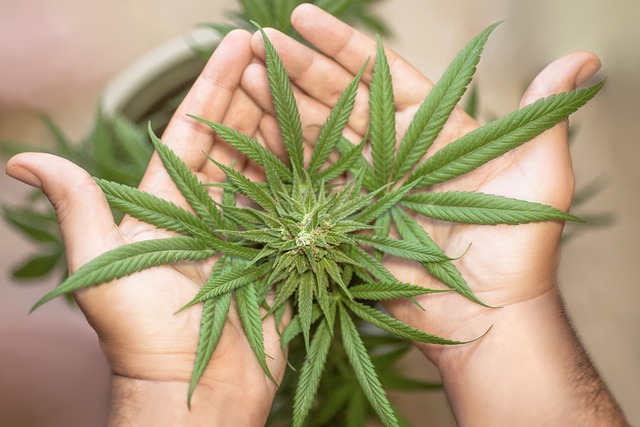
Exploring the potential benefits of THCA flowers, a natural derivative of cannabis, reveals its promising anti-inflammatory properties. Tetrahydrocannabinolic acid (THCA), the raw and non-psychoactive form of THC found in hemp and marijuana plants, has garnered attention for its therapeutic benefits. Studies suggest that THCA interacts with the body’s endocannabinoid system, influencing pain and inflammation responses without the psychoactive effects associated with THC. Users interested in harnessing these anti-inflammatory effects often turn to THCA flower products, which can be consumed in various ways, including smoking or vaporizing. The anti-inflammatory effects of THCA are believed to stem from its ability to inhibit certain enzymes and receptors linked to inflammation and pain sensation. This makes it a potential natural alternative for individuals seeking relief from conditions like arthritis or muscle soreness without the mind-altering side effects often associated with other cannabinoids. As research continues, the role of THCA flowers in providing natural anti-inflammatory relief becomes clearer, offering a promising avenue for integrative health strategies.
The Science of THCA: Understanding Its Anti-Inflammatory Properties

Tetrahydrocannabinolic acid (THCA) is the non-psychoactive precursor to THC, the primary psychoactive component found in cannabis. Recent scientific studies have shed light on the potential anti-inflammatory properties of THCA. These findings suggest that THCA may be beneficial for conditions characterized by inflammation, such as arthritis and multiple sclerosis. The anti-inflammatory effects of THCA are believed to stem from its interaction with the body’s endocannabinoid system, particularly the CB1 and CB2 receptors. This interaction can modulate various immune responses, leading to reduced inflammation without the psychoactive side effects associated with THC.
Furthermore, research indicates that THCA possesses a significant potential for therapeutic use due to its anti-inflammatory capabilities. Unlike many pharmaceutical anti-inflammatory drugs that can cause gastrointestinal distress or other adverse reactions, THCA has shown promise in alleviating inflammation with minimal side effects. The flower form of THCA allows for a more direct method of consumption, as smoking or vaporizing the raw cannabis flower preserves the THCA in its natural state. This delivery method provides an immediate effect, making it a preferred choice for those seeking to harness its therapeutic benefits. As such, the study and utilization of THCA flower’s anti-inflammatory effects continue to be a subject of great interest within the scientific community and among medical professionals exploring alternative treatment options.
Harvesting Harmony: Tips for Selecting High-Quality THCA Flower
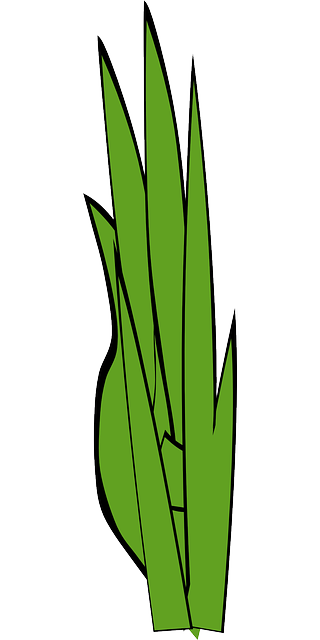
When selecting high-quality THCA flowers for their potential anti-inflammatory effects, it’s crucial to consider several factors that can influence the potency and purity of the product. Harvesting at the optimal time is a key element; THCA flowers should be picked when they exhibit a high concentration of trichomes, the crystal-like resin glands that house the cannabinoids, including THCA, which can convert to THC upon heating. These trichomes are not only responsible for the plant’s psychoactive properties but also for its therapeutic potential, such as its anti-inflammatory effects. To ensure you’re getting a quality product, inspect the flowers for a frosty appearance, which indicates a dense covering of trichomes. Additionally, the color of the flower can be an indicator of maturity; look for vibrant colors with no signs of yellowing or browning, as these can signal degradation.
Furthermore, the environment in which the THCA flowers are grown plays a significant role in their quality. Opt for strains cultivated in soil that has been tested and found to be free of contaminants. A clean growing environment minimizes the risk of pesticide residues or other harmful chemicals, ensuring a purer product with the intended anti-inflammatory effects. It’s also beneficial to choose flowers from a provider who employs sustainable farming practices and adheres to strict quality control measures throughout the cultivation process. This commitment to excellence not only preserves the natural medicinal properties of the THCA but also enhances the overall experience for consumers seeking the therapeutic benefits it offers.
Preparation and Consumption: Maximizing the Anti-Inflammatory Benefits of THCA Flower
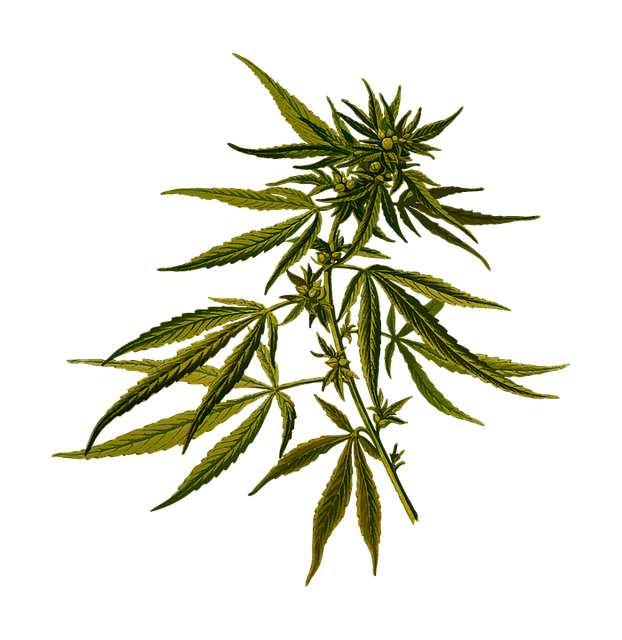
THCA flower, rich in tetrahydrocannabinolic acid (THCA), possesses a robust profile of anti-inflammatory effects that can be harnessed through careful preparation and consumption. To maximize these benefits, it’s crucial to understand the proper handling and dosing of THCA-rich material. Begin by selecting high-quality THCA flower from reputable sources; this ensures a higher concentration of the cannabinoid in its natural state. Upon receipt, store the flower in a cool, dark place to preserve its potency and prevent degradation.
When preparing THCA flower for consumption, grind the material to increase surface area for more effective decarboxylation if you choose to activate THC. However, if your goal is to maintain the anti-inflammatory properties of THCA, consume it in its raw form. Raw THCA flower can be incorporated into smoothies, juices, or teas, allowing the body to directly benefit from its anti-inflammatory effects. For those who prefer not to ingest the flower, it can also be vaporized at lower temperatures to avoid combustion and maintain the integrity of THCA. Regardless of the method, start with a small dose to assess individual sensitivity and gradually adjust according to personal wellness goals and the advice of healthcare professionals. Regular consumption, as part of an overall balanced lifestyle, may contribute to maintaining optimal health and reducing inflammation within the body.
Integrating THCA Flower into Your Wellness Routine for Optimal Health
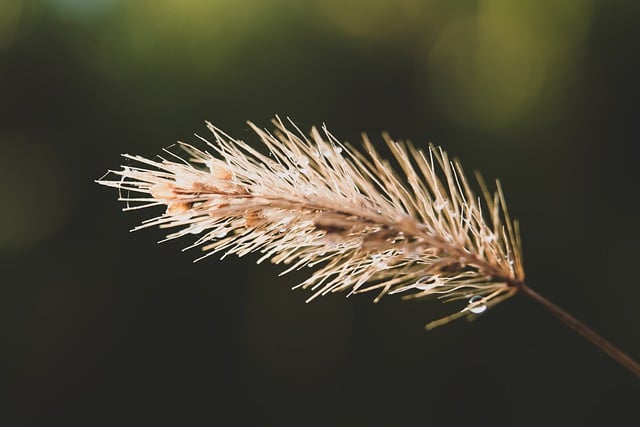
Incorporating THCA (Tetrahydrocannabinolic Acid) flower into your wellness routine can be a beneficial addition for those seeking to harness its anti-inflammatory effects. Unlike its psychoactive counterpart, THC, THCA is non-psychoactive and offers a range of potential health benefits. Its potent anti-inflammatory properties are particularly noteworthy for individuals looking to manage inflammation-related conditions without the mind-altering effects associated with cannabis consumption. The THCA found in raw cannabis flowers is believed to interact with the body’s endocannabinoid system, which plays a crucial role in regulating various physiological processes, including pain sensation and immune response. By integrating THCA flower into your wellness regimen, you can potentially alleviate symptoms of inflammation, such as joint discomfort or gastrointestinal distress, without the need for over-the-counter or prescription medications. Additionally, the anti-inflammatory effects of THCA are also being explored for their potential role in supporting overall cardiovascular health and maintaining healthy immune system function. As with any wellness practice, it’s important to consult with a healthcare provider before adding THCA flower to your routine, especially if you have existing health conditions or are taking other medications. This ensures that your use of THCA flower is both safe and effective for your individual needs. With careful consideration and professional guidance, THCA flower can be a valuable component in promoting optimal health and well-being through its anti-inflammatory effects.
Through the exploration of ‘THCA Flower Anti-Inflammatory Effects,’ this article has delved into the natural potential of THCA as an effective anti-inflammatory agent. From understanding its scientific properties to selecting high-quality flower, and integrating it into a wellness routine, the insights provided underscore the benefits of THCA for those seeking alternative relief options. By following the tips outlined in ‘Harvesting Harmony: Tips for Selecting High-Quality THCA Flower’ and understanding its consumption and preparation as detailed in ‘Preparation and Consumption: Maximizing the Anti-Inflammatory Benefits of THCA Flower,’ readers are now equipped with knowledge to harness the full potential of THCA flower for anti-inflammatory effects. Incorporating this natural remedy into your daily wellness routine may offer a harmonious approach to health and comfort.
